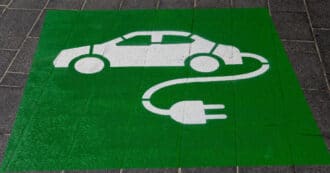By Matthew Mausner – We talk about a ‘consumer culture‘. We talk about people as consumers as if that’s their identity- rather than citizens, workers, or any other aspects of a full human life. But what is consumerism, really? The point is not consumption of goods and services- the emphasis is rather on the consumer.
Consumerism refers to an orientation of society, of ordinary people, to be defined by what they consume: not merely resources, goods, and services, but brands, fashion, identity, and their rights as purchasers of those goods and services. We see this in social and economic terms, in media, in the goals of business, and in the idea of buying things as a goal and process for life in and of itself.
Is consumerism specifically an American thing?
America, more than any other major society today, has a culture that’s been defined by consumerism, by the spending choices and habits of its people, and by the identity traits consumerism creates. ‘Conspicuous consumption‘ might be seen as unsophisticated in France or looked down upon in Denmark, but in America it’s seen as a virtue.
Yet American consumerism, led by its brands, products, and lifestyle with cars and Coca-Cola, has indeed spread to the much of humanity.
The economy drives consumerism
Some say that’s actually a function of the economy itself, and for the last 130 years, America has had the world’s largest, most vital, and creative economy.
Business creates consumer demand, and competition drives better and better products, goods and services to cater to that demand. Jobs are generated producing and delivering all the goods and services, and the wages and wealth are spent on more and more products and goods and services.
Yet such a cycle always had downsides. The ‘rat race‘ was the common parlance for this endless search for wealth, for increasing consumption for its own sake. The above equation means more and more use of resources, some of which are non-renewable and damaged the landscape, like logging and mining. More and more marketing to ‘create demand’ meant more and more of a focus on material, rather than spiritual, life satisfaction in society.
How does consumerism coexist with being religiously affiliated?
Much of American history has been shaped by the varied religions and movements, from its beginnings in refugee Christian sects settling in the early 17th century, through the Great Awakening, the Temperance movement, and the Evangelical movement. Town or neighborhood life centered on religious activities was a hallmark of American life until quite recently, and America was measured as quite a bit more religious than most other Western countries.
Back as far as Alexis de Tocqueville’s visit to America in the 1830s, visitors were struck by both how consumerist America was, and also how fervently invested American society was in their faith communities in that century.
Many people thought of those faith traditions, particularly the strains that emphasize various values above materialism, as a necessary counterweight to the stunning powerful influence of consumerism that grew and spread to the world along with American economic growth, inventions, business, services, and way of life.
Some Protestants developed a very distinct pro-material and pro-wealth theology, which also has had a lasting impact on American consumerism and society. As Tara Isabella Burton wrote in Vox, “The prosperity gospel is an umbrella term for a group of ideas — popular among charismatic preachers in the evangelical tradition — that equate Christian faith with material, and particularly financial, success.”
America, following and soon surpassing its parent countries of England and France, became a center and the cutting edge of the Industrial Revolution in the 19th century. With its vast natural resources and a huge domestic economy ready to consume the plentiful goods and services generated by its artisans, inventors, and factories, America became both the biggest producer and consumer of the abundance of the industrial economy.
Prosperous communities and consumer culture
Americans themselves embodied that industriousness, and from that time even to our own century, lead the world in entrepreneurship and risk-taking. Some of this comes from the values that came out of its faith traditions including not only Calvinism and Puritanism, but also the immigrant shop-owner and small-business-owner habits common to particularly Jewish-American, Asian-American and Caribbean-American communities. They brought their own partly faith-based values of innovation and industriousness. Yet all of this together, while increasing America’s prosperity, also included ever-increasing consumer culture.
As there were no more ‘noble’ families, Americans became more and more wealth-obsessed, as wealth became conflated with status, and the clothes, toys, gadgets, and cars of consumerism became identified with striving for wealth.
America developed a unique sort of attitude about a ‘self-made man’- and the symbols and trappings of status became more and more associated with wealth itself.
The wealthier America became and the more people became secure in their livelihoods especially in the 20th century, ‘worker’ became a less common self-identification — and ‘consumer’ became the more common self-identify. Individual consumers became self-defined by the brand and quality of their shoes, shirts, suits, watches, televisions, and houses.
Creating consumer demand
The ‘original’ ideal of some of the founding fathers, particularly Thomas Jefferson, was the self-sufficient ‘yeoman farmer’, with enough fertile land on his fully-owned farm to be independent of the market- and even of the power of the state.
Yet by the 1820s when the market revolution truly swept across America (read ‘The Market Revolution‘ by Charles Sellers), such self-sufficiency was already unrealistic (if indeed it ever was) and everyone was caught up in redefining themselves around consumerism and the new economy. Most of all this was seen in the new phenomenon of advertising.
Advertising and consumerism
What do you actually need to live- and what do you think or believe that you need? Advertising is the practice of persuasion for people to purchase products and services, and it is nowhere more advanced than in the United States.
While some products are known about, chosen, or bought by consumers for reasons other than advertising and marketing, most products and services are only known about by those who purchase them because they were advertised to them.
Very often the goal of advertising is to ‘create demand’- possibly where there is none. Shampoo that ‘treats or prevents dandruff’ is almost entirely an invention of the advertising industry: before the early 20th century, dandruff was simply a minor and uninteresting occasional fact of life.
Advertising campaigns convinced people that dandruff was a problem, had negative social consequences, and therefore that you should buy their heretofore unnecessary product: (anti-)dandruff shampoo.
Most people would consider such behavior ‘lying’ or manipulation – yet it so pervades our consumerism culture and society and economy, that it is now such lying, rather than dandruff, that is considered normal.
Short-Term Consumerism
In 1955, the retailing analyst Victor Lebow highlighted a trend in consumer society, one moving away from greater mindfulness regarding possessions and toward a more short-term view.
He wrote, “Our enormously productive economy demands that we make consumption our way of life, that we convert the buying and use of goods into rituals, that we seek our spiritual satisfactions, our ego satisfactions, in consumption . . . We need things consumed, burned up, worn out, replaced, and discarded at an ever increasing pace.”
Harvard economist John Kenneth Galbraith wrote on how advertising tends to confuse the public and direct them away from their core values.
Consumerism without a soul
Increasingly in the culture of consumerism, everything is a product, and the product itself increasingly is its own advertisement. Packaging contains the logo and an ad to buy it again. So-called television news is its own advertisement, is far more concerned with entertainment that drives ‘ratings’ to generate revenue from advertising, and plugs its own or its network’s other shows.
If this sort of advertising, marketing, spin, and manipulation becomes the norm everywhere, and some would say that it has– what are we left with? Where is there any truth, integrity, or meaning that we can count on?
Where is religion in regards to consumerism?
In spite of America’s leading role in inventing and creating and disseminating consumerism and consumer culture, it also used to have an adequate counterweight of values that were in many ways held together by organized religion.
The massive weakening of organized religious affiliation in the latter 20th century has left Americans, even if they identify as ‘spiritual’, without the coherent and consistent context of church, synagogue, or other similar organized ongoing community activities.
In the absence of the sacred, consumerism and political tribal identities have taken up much of that energy. And yet consumption of goods and services continues unabated, even to the exhaustion of bountiful natural resources and an irresistible momentum of destruction.
Relating to consumer society based on the Bible
Consumer society didn’t exist at the time of the Bible, but there are Bible teachings that are relevant for how we relate to modern consumerism. In Genesis chapter 32 verses 24-25 state that Jacob remained alone despite facing an imminent confrontation with Esau and his 400-man militia.
According to the rabbis of the Talmud, he recrossed a stream at night to recover a few small vessels he forgot to bring across. Why does Jacob, in this moment of danger, leave his family alone and vulnerable at night to recover a few forgotten flasks, as the commentary Eco Bible notes?
Jacob’s recrossing of the stream exposes a striking contrast between two worldviews on material possessions. One sees the things we own as essential and indispensable. The other views them as expendable and disposable. Jacob’s example presents a particular challenge for those of us who live in a world of abundance and built-in obsolescence where it is so easy to throw things away and often difficult to get older things repaired.
Today, we throw away usable items because they are a few years old and may be outdated by new products. Instead of repairing clothing and appliances, we often just buy new ones. Our relationship with the resources we consume has significant consequences for the planet.
Yet, how is it possible that human beings could cause such widespread imbalance?
Most of the big things that happen in the world result from an accumulation of many small things –like the mining of aluminum needed for each can, the fuel needed to truck each glass bottle to a faraway dump – combined with countless small acts, and multiplied by 250 years of industrial society and billions of people.
The seeming absurdity of Jacob’s action becomes understandable when one examines his worldview: he believes that everything in his possession comes from God, has a specific purpose, and must be used to its full potential. May we follow in his example.
* Featured image source






